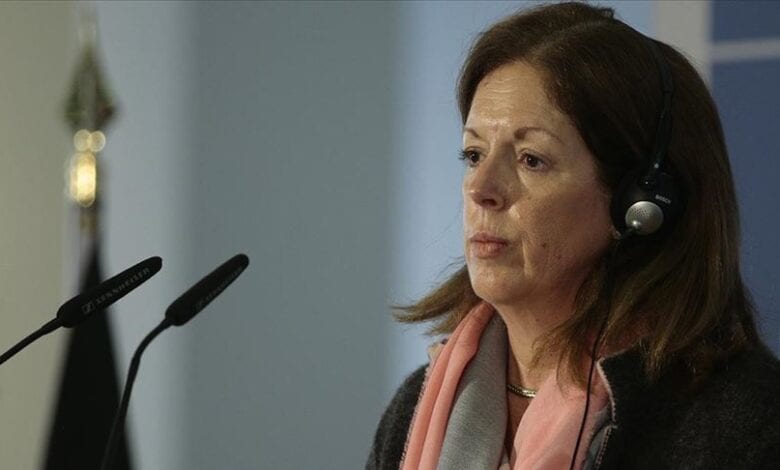
Human Rights Solidarity writes a letter to the United Nations Support Mission in Libya regarding the “Libyan Political Dialogue Forum”
Human Rights Solidarity (HRS) sent a letter[1] to Ms. Stephanie Williams, Acting Special Representative of the Secretary -General and Head of the United Nations Support Mission in Libya (UNSMIL), in which HRS expressed its concern over the mission’s unconditional endorsement of the call by the participants in the Libyan consultative meeting, organized by the Center for Humanitarian Dialogue on September 7-9, 2020 in Montreux, Switzerland, to “implement the amnesty law approved by the House of Representatives” and considering it as one of the “necessary steps to achieve national reconciliation.” HRS called on the mission to clarify its position on the attempt to grant amnesty to perpetrators of serious violations in Libya.
HRS believes that the application of the Amnesty Law, issued by the House of Representatives, which grants general amnesty to “all Libyans who committed crimes during the period from February 15, 2011 to the date of issuance of this law”, will lead to amnesty for perpetrators of war crimes and crimes against humanity[2], and this is unacceptable. War crimes and crimes against humanity are not subject to any statute of limitations and cannot be dropped by general or special amnesties.
HRS also dismissed the mission’s claims that the selection of participants in the Libyan Political Dialogue Forum (LPDF) was “based on the principles of inclusivity, fair geographic, ethnic, political, tribal, and social representation” and “transparency and a rights-based approach.” HRS described these claims as being far from the truth. Ahmed Mahmoud, a human rights researcher at HRS, said, “The mission’s claim that it adhered to transparency, inclusiveness, and geographical and political representation in selecting participants in the LPDF, is not supported by facts. Regarding transparency, what are the criteria upon which people were selected? Where are these criterion? And who selected them? With regard to inclusiveness, especially with regard to political representation, where are those who are not acolytes of the renegade Major General, whether members of House of Representatives or activists, from the cities of the East and the South?”.
Giumma El Omami, President of the Human Rights Solidarity Organization, said that the main problem in Libya, which he considers the main reason behind the grave human rights violations in Libya, is impunity. HRS’s President said, “The application of the House of Representatives law regarding general amnesty means the acceptance of impunity for grave violations in Libya. This will not lead to a resolution of the crisis in Libya, but rather to more violations. The experiences of the countries which emerged from periods of tyranny and violence in all its forms, sectarian, ethnic or political, clearly indicate that the countries and societies which dealt with the legacy of the dark periods, by adopting a model of transitional justice, and which no-to-impunity was a fundamental pillar of it, only these societies were able progress to stability. Without justice, peace will not be achieved, and thus stability will not be achieved”.
[1] Attached a copy of the letter sent by HRS to Ms. Stephanie Williams, the ASRSG and Head of the UNSMIL.
[2] The lawyers of the fugitive Saif al-Islam Gaddafi tried to use Law 6 (2015) to stop the proceedings against him before the ICC, but the court rejected their appeal. ICC: “Saif Al-Islam Gaddafi case: ICC Appeals Chamber confirms case is admissible before the ICC”, March 9, 2020.
LHRS-LTR-2020-10-586




